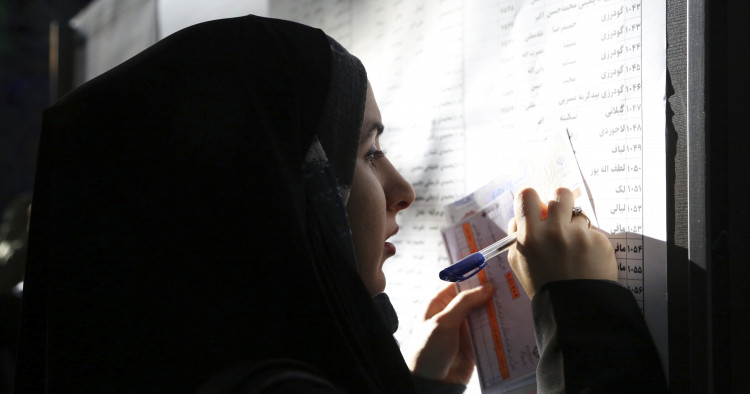Contents:
- Iran’s Guardian Council clears a path to the presidency for Raisi
- UN Human Rights Council approves Gaza Commission of Inquiry
- Sudan's transitional government and SPLM-N kick off peace talks in Juba
- Facing domestic woes, Erdoğan doubles down on symbolism
Iran’s Guardian Council clears a path to the presidency for Raisi
Nazila Fathi
Non-Resident Scholar
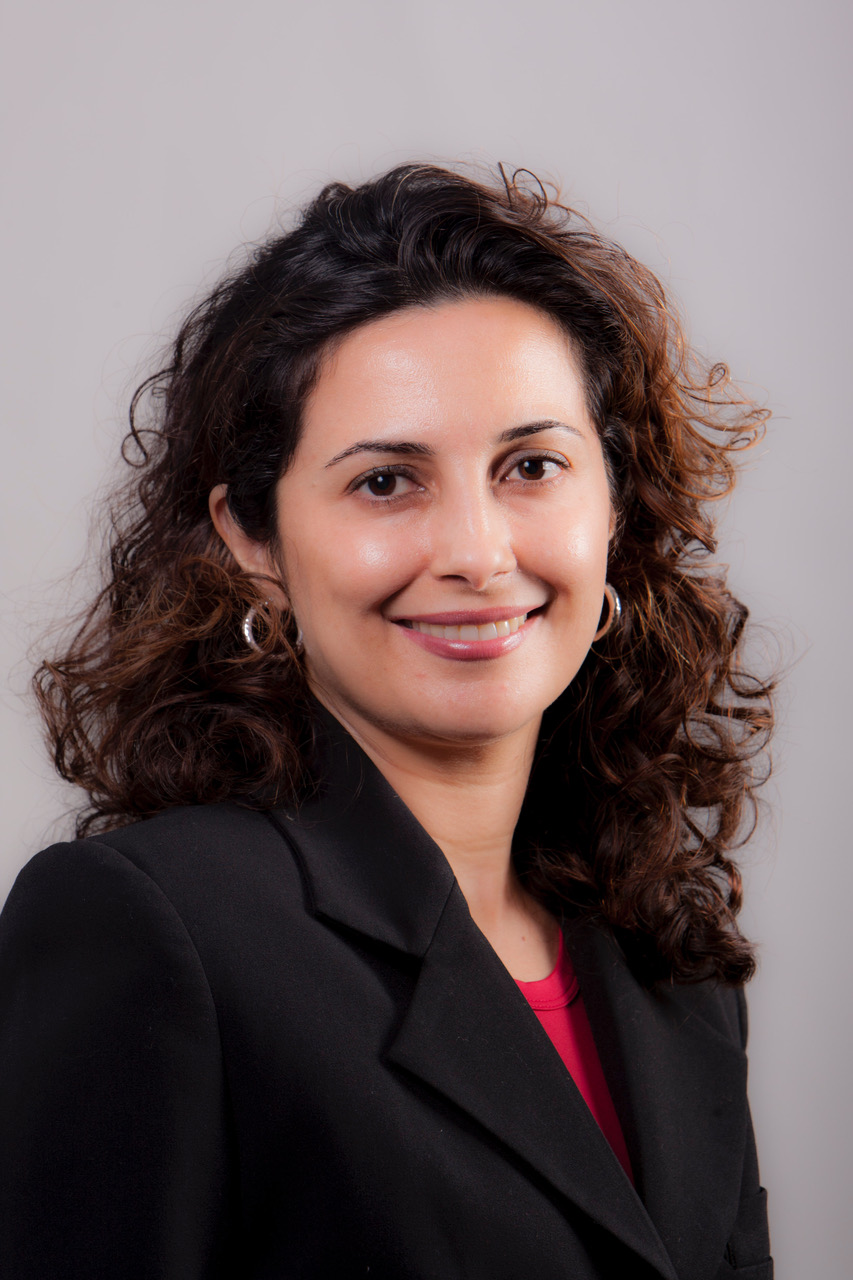
Iran’s hardline Guardian Council, the body that vets candidates, barred hundreds of hopefuls who had registered to run for the June 18 presidential race, paving the way for the current judiciary chief, Ebrahim Raisi, to run almost unchallenged. The other six candidates who were approved to participate have next to no voter base.
Among those excluded from the race were the current vice president, Ishaq Jahangiri, and a former speaker of parliament, Ali Larijani, both high-profile politicians who would have won the votes of more moderate constituents. The line-up of candidates highlights the conservatives’ unwillingness to take any risk that might derail Raisi’s ascent to the presidency.
The disqualifications prompted louder and wider calls for an election boycott. The Interior Ministry Election Headquarters, which tends to offer an optimistic forecast, predicted a 40% turnout last week. A low turnout may secure the election of Raisi but will also create a legitimacy crisis for the regime, signaling a rejection of the Islamic Republic. Many are dissatisfied with an ailing economy crippled by ongoing U.S. sanctions. State repression is on the rise, as well as poverty and corruption. The majority of people have come to believe the president does not have enough power to improve conditions.
Ayatollah Ali Khamenei, the country’s supreme religious leader who has the final word on state matters, seems to favor Raisi’s election. He appointed Raisi, now 60, to head the judiciary in 2017 after Raisi lost a bid for the presidency to Hassan Rouhani. On Thursday, he publicly endorsed the Guardian Council’s decision, saying it had done its duty.
The Guardian Council barred moderate and reformist candidate from running in parliamentary elections last year too, helping conservatives to consolidate their power. With Mr. Raisi’s election to the presidency, conservative and hardline forces will take over all branches of the government.
Raisi, who is running on an anti-corruption campaign, says his priority is to fix the economy and lift U.S. sanctions — implying that he is inclined to keep Iran in the nuclear agreement with the West.
Human rights activists have warned against Raisi’s election. He was among a small group of clerics that signed off on the executions of thousands of political prisoners in 1988.
UN Human Rights Council approves Gaza Commission of Inquiry
Charles W. Dunne
Non-Resident Scholar
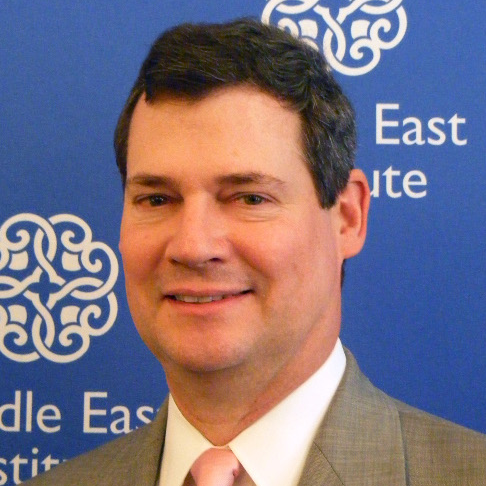
As the dust settled in Gaza following the 11-day war between Hamas and Israel, the United Nations Human Rights Council (UNHRC) voted on May 27 (24-9, with 14 abstentions) to set up an independent Commission of Inquiry to investigate the recent violence. The UNHRC took similar action after the Gaza-Israel conflicts in 2009 and 2014. But this time there were two major differences: The first is that the latest Gaza commission will be “ongoing,” in other words a standing, open-ended body that will not merely issue a report to the Council and then disband, as did the last two investigations. Second, the commission was pointedly charged with collecting information, testimony, and forensic evidence of all “abuses and of crimes perpetrated” for use in possible legal proceedings — in other words, to support potential war crimes charges.
Israel denounced the decision, Palestinian officials cheered it, and the United States “regretted” it, complaining it would undermine ongoing diplomatic “progress.”
But the willingness of the UNHRC to establish a standing commission with a sweeping mandate suggests just how much has changed in international perceptions of the Israeli-Palestinian conflict in the last few years. Far from detecting any “progress,” the international community increasingly sees an intractable conflict in which the Palestinians are being aggressively dispossessed and subjected to relentless human rights abuses. The “two-state” solution is now largely ignored as a dead end. “Rebuilding Gaza” yet again holds little appeal for jaded donors. The United States, once the indispensable “honest broker,” acts more like a powerless bystander. (Or worse; prior to the UNHRC vote, the United States repeatedly blocked Security Council efforts to issue statements on the violence.) There is a growing sense that a new direction is needed to acknowledge past diplomatic failures and chart a new course.
The UNHRC will do both the Palestinians and Israel a disservice if it fails to report fairly and transparently on “all alleged violations and abuses of international human rights law” in the recent flare-up, as well as “all underlying root causes,” including violations by Hamas. But if it does so, the UNHRC could make a significant contribution to a new way forward, one based on restoring the salience of international law, and recognizing and securing the equal, inviolable human rights of all the inhabitants of Israel/Palestine.
Sudan's transitional government and SPLM-N kick off peace talks in Juba
Mohammed Soliman
Non-Resident Scholar
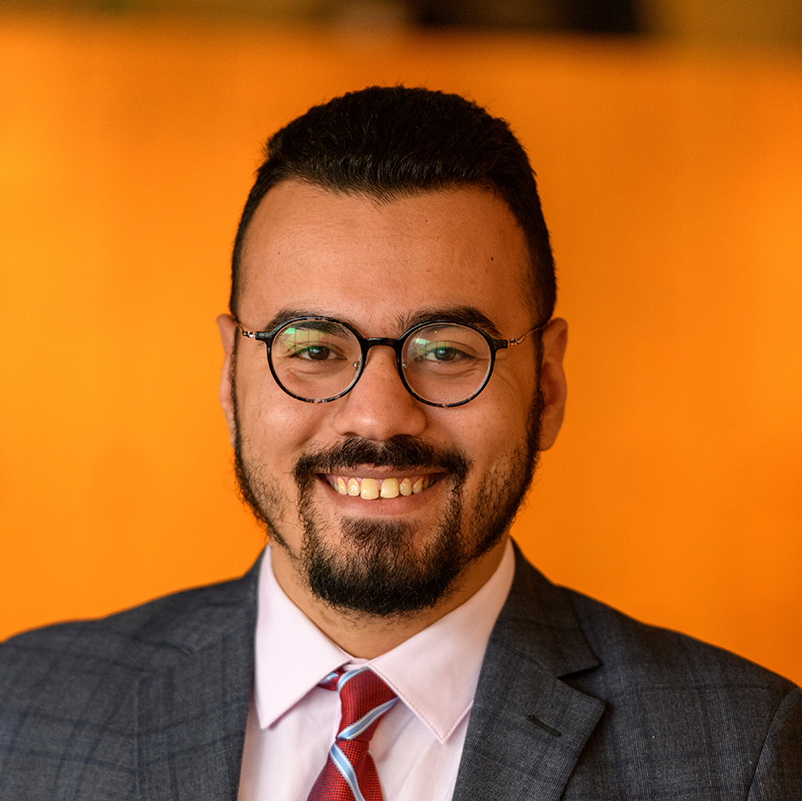
Sudan's joint military-civilian transitional government — represented by Gen. Abdel-Fattah Burhan, head of the ruling Sovereign Council, and Prime Minister Abdalla Hamdok — and Sudan's People's Liberation Movement-North (SPLM-N) — represented by Abdel-Aziz al-Hilu — have started a new round of peace talks in South Sudan's capital, Juba. The Juba talks build on the Declaration of Principles signed in March, when the two parties agreed on the need for a "civil democratic state, the separation of religious identities from the state, and the freedom of religion." In the current talks, the transitional government and SPLM-N hope to reach a settlement to their decades-old conflict.
Since the beginning of the political transition in Khartoum, the transitional government has prioritized peace talks with the various rebel groups around the country to stabilize Sudan, ease the pressure on the ailing economy, and ultimately secure a peaceful transition to democracy. The transitional government has already negotiated a number of peace agreements with several rebel groups with a roadmap to integrate armed militias into the Sudanese Armed Forces.
However, SPLM-N represents a unique challenge for the transitional government since the group is Sudan's single largest armed militia and holds territories in the strategic Blue Nile and South Kordofan provinces. SPLM-N demands a secular state with no role for Islam in policymaking in Khartoum and the disbanding of all Bashir-era militias in favor of integrating their members into the Sudanese Armed Forces. While the transitional government and SPLM-N agree on the urgent need for a peaceful settlement, the SPLM-N's demands represent a challenge to the transitional government and the fragile balance between political factions in Khartoum. Ultimately, the transitional government hopes to keep Sudan a unified state by finalizing an agreement with SPLM-N that doesn't alienate Islamist factions or the Bashir-era militias.
Follow on Twitter: @ThisIsSoliman
Facing domestic woes, Erdoğan doubles down on symbolism
Seren Selvin Korkmaz
Non-resident Scholar
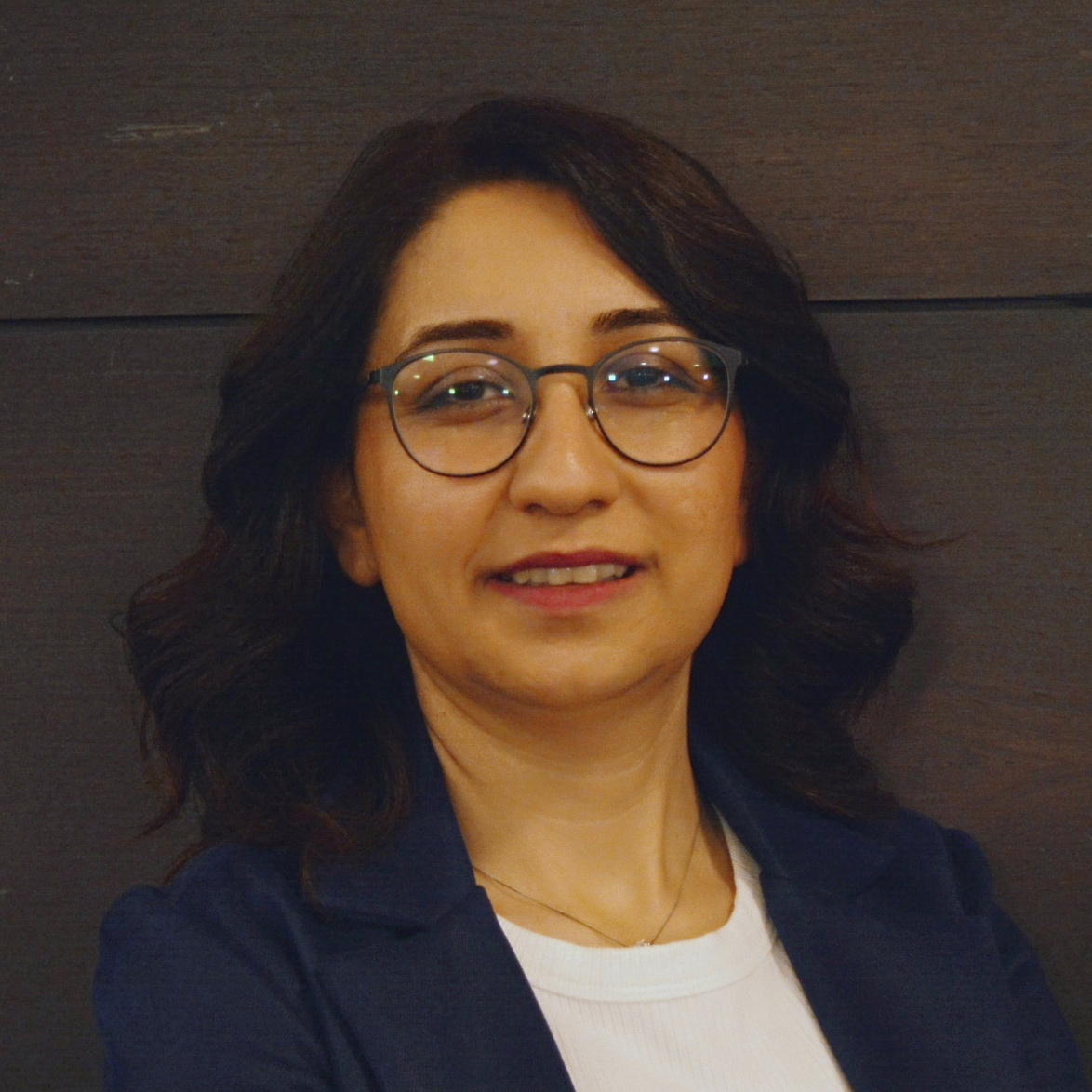
On Friday, May 28, Turkish President Recep Tayyip Erdoğan inaugurated a new mosque on Istanbul's iconic Taksim Square on the 8th anniversary of the anti-government Gezi Park protests. As a populist leader, Erdoğan likes symbolism, and nowadays he needs his hegemonic and symbolic claims more than ever because he and his party currently face severe domestic economic and political problems. In the absence of concrete policies to address them, Erdoğan once again aims to use nationalism and Islamism to mobilize his base.
Taksim has an important symbolic place in the history of Istanbul and Turkey. Located in the historically Greek and Armenian area of Beyoğlu, it serves as one of the city’s entertainment, cultural, and touristic hubs. The new Taksim Mosque rises to the same height as the nearby Hagia Triada Greek Orthodox Church. Taksim Square was also known as "Republic Square," because it was built by the Republic of Turkey's founding fathers to commemorate the war of liberation. In addition, Taksim is where demonstrations are typically held. May Day ceremonies, feminist night marches on 8 March, Pride marches, and demonstrations by the Saturday Mothers are all held in and around Taksim. For the left-wing movement, it has particular historical significance as well. Thus, Erdoğan’s hegemonic claims over Taksim have a symbolic meaning.
Over the course of its rule, the Justice and Development Party (AKP) has come to control not only the institutional apparatus of the state, but it has also transformed the state and Turkey’s national identity. Through this transformation process, urban space has become the subject of a hegemonic war on different identities.
Çamlıca Hill, Istanbul’s highest point, is the site of another gigantic mosque built by the AKP as well. The construction of mosques in these two key locations of the city goes beyond a purely religious motivation. The Çamlıca Mosque was a personal project for President Erdoğan. In May 2012, he explained that they were planning to build a huge mosque on Çamlıca Hill and it would be seen from every part of Istanbul. This project sparked social debate and criticism, especially from secular opponents, who raised concerns over the Islamization of space. However, the project was celebrated in Islamic circles.
Çamlıca Mosque also has added historical significance as it represents the recreation of an Ottoman tradition. Istanbul is known as the “city of seven hills,” in reference to the “Old City” (of which Çamlıca Hill is not part), and on each hill there is a symbolic historical Ottoman mosque. Those mosques are known as selatin (or “sultans”) mosques, as the sultans or their family members built them. Thus, as Erdoğan’s personal project, Çamlıca Mosque symbolizes his own power and rule.
As Erdoğan falls in the polls and the opposition bloc increases its power, he loses his pragmatic side and focuses more on ideology and symbols.
Follow on Twitter: @selvinkorkmaz
Photo by Fatemeh Bahrami/Anadolu Agency via Getty Images
The Middle East Institute (MEI) is an independent, non-partisan, non-for-profit, educational organization. It does not engage in advocacy and its scholars’ opinions are their own. MEI welcomes financial donations, but retains sole editorial control over its work and its publications reflect only the authors’ views. For a listing of MEI donors, please click here.













